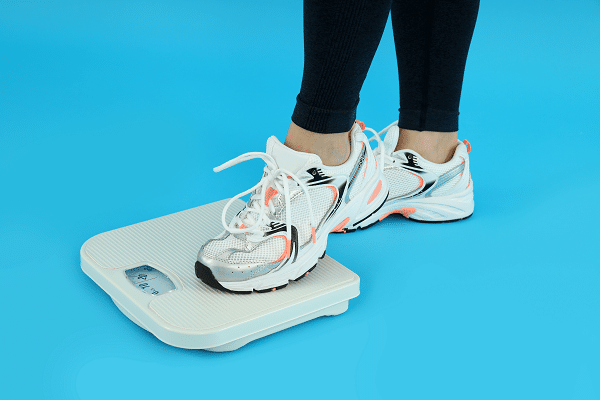Weight loss can often seem daunting, a journey marked by significant lifestyle overhauls, grueling workouts, and restrictive diets. But what if we tell you it doesn’t have to be this way? That weight loss can be achieved through tiny, sustainable changes seamlessly blending into your daily life. This article aims to demonstrate how possible this is and offer a series of practical and easy-to-implement lifestyle modifications that can significantly impact your weight loss journey.
Understanding Weight Loss

Before we delve into the details, it’s crucial to understand the basic principles of weight loss. Weight loss happens when you burn more calories than you consume, creating a caloric deficit. Physical activity aids in burning calories, while your diet impacts the number of calories you intake. It’s a balance between these two factors determining whether you gain, lose, or maintain your current weight. Understanding this principle helps to form the foundation for implementing small but meaningful changes to your lifestyle for weight loss.
However, weight loss isn’t just a mathematical equation. The quality of food you eat, your metabolic rate, hormonal health, and even sleep and stress levels can all play a role. Also, it’s essential to debunk the popular weight loss myths, such as “carbs are the enemy” or “exercising on an empty stomach burns more fat.” These misleading ideas can often lead to unhealthy habits that do more harm than good. That’s why focusing on sustainable, healthy changes rather than quick fixes or fads is crucial to long-term weight loss success.
Better Eating

Eating mindfully is a small yet profound change you can incorporate into your lifestyle. It involves focusing on what you’re eating, savoring each bite, and listening to your body’s hunger and fullness cues. This simple practice can prevent overeating and make meals more satisfying. Consider Sarah, a client who often found herself eating in front of the TV, hardly noticing what or how much she was consuming. After practicing mindful eating, she not only started enjoying her meals more but also noticed she was eating less, contributing to her weight loss.
Portion control is another effective strategy. This doesn’t necessarily mean eating less; it’s about understanding serving sizes and eating balanced portions of different food groups. For instance, Sam, a participant in a weight loss program, struggled with overeating healthy foods, thinking that it wouldn’t impact his weight. By learning about portion sizes, he was able to adjust his meals, leading to a more balanced diet and significant weight loss.
Increasing Physical Activity

Incorporating movement into your everyday routine is a great way to improve physical activity without the need for a rigorous workout regimen. This can be as simple as taking a walk during your lunch break, parking a little farther from the store entrance, or even doing some light stretching while watching TV. Take the example of Jane, a busy mother who couldn’t find time for traditional exercise. She started incorporating more movement into her daily routine and gradually noticed her energy levels improve and her weight decrease.
Another simple yet impactful change is choosing the stairs over the elevator. It might not seem like much, but these additional steps add up over time and contribute to your overall physical activity level. Look at Robert, a corporate worker who switched to using stairs instead of the elevator at his office building. Over several months, this small change led to improved fitness levels and noticeable weight loss.
Mental Health

Prioritizing sleep is an often-overlooked aspect of weight management. Lack of sleep can affect your hunger hormones, leading to increased appetite and potential weight gain. Consider Lisa, who found that improving her sleep habits not only made her feel more rested but also helped curb her late-night snacking, contributing to her weight loss.
Reducing stress is another key component. High-stress levels can lead to emotional eating and unhealthy food choices. Techniques such as meditation, deep-breathing exercises, and even simple hobbies can help manage stress levels. Take the example of Mark, who began practicing daily meditation. Not only did his stress levels decrease, but he also noticed a reduction in his habit of stress-eating, which significantly benefited his weight loss journey.
Hydration

Hydration plays a pivotal role in weight management. Drinking water aids in digestion, keeps your metabolism functioning efficiently, and can even act as a natural appetite suppressant. A small change like drinking a glass of water before each meal can lead to consuming fewer calories and feeling satisfied sooner. Furthermore, often when we think we’re hungry, we’re actually just dehydrated. By staying well-hydrated throughout the day, you can prevent these false hunger signals and avoid unnecessary snacking.
Consider the case of Alex, who used to consume several sugary drinks each day, often mistaking his thirst for hunger. By switching to water and keeping a water bottle with him at all times, he was able to significantly cut down his calorie intake and reduce his habit of mindless snacking. Over time, this small change had a considerable impact on his weight loss efforts, further proving that tiny adjustments in our daily routine can lead to remarkable results.
How to Start Implementing These Tiny Lifestyle Changes
The secret to making these changes is to start with one at a time. Trying to overhaul your entire lifestyle at once can be overwhelming and unsustainable. Choose one small change, practice it until it becomes a habit, then move on to the next.
Monitoring your progress is crucial. This doesn’t mean obsessing over the scale but rather noticing changes in your energy levels, your fitness, and how your clothes fit. It’s important to remember to be patient and consistent. Weight loss is a journey, and results take time. However, these tiny, sustainable changes can add up to significant weight loss over time.
So, there you have it – a guide to small lifestyle changes that can make a big impact on your weight loss journey. Remember, every significant journey begins with small steps. Here’s to taking that first step toward a healthier, happier you!


